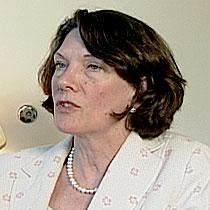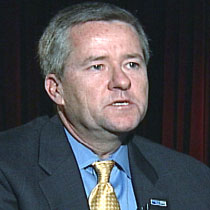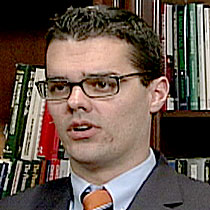2007年VOA标准英语-Non-governmental Organizations Claim to Serve H
搜索关注在线英语听力室公众号:tingroom,领取免费英语资料大礼包。
(单词翻译)
By Jela De FranceschiWashington
12 July 2007
Non-governmental organizations (NGOs) are rapidly growing all over the world. Many are dedicated1 to alleviating2 humanitarian3, social and educational problems of the less fortunate in society. In Focus, VOA's Jela de Franceschi, looks at NGOs, and examines whether they are the "conscience of humanity," as their supporters say, or the "puppets" of foreign states as critics charge.
In recent years, thousands of non-governmental organizations have sprung up in all parts of the world. Foreign policy analysts5 say India has at least a million NGOs and Russia 400,000 and they are spreading in Africa. The United States has an estimated two million NGOs or non-profit organizations.
 |
| Pamela Aall |
Brian Gallagher, President and CEO of the United Way of America, agrees.
 |
| Brian Gallagher |
The United Way is one of the oldest, private volunteer organizations in the United States -- founded by two priests and a rabbi in 1887. Gallagher says the United Way works with business and religious leaders to identify a community's most critical needs.
"It could be education, it could be lack of affordable7 housing or teenage drug and alcohol abuse," he says. "We work together with different interests in the community to devise strategies to try to alleviate8 some of those problems. We raise money and then we fund projects and programs that deal with those issues."
But voluntary organizations are often criticized when they take large donations from single private sources or accept government grants.
 |
| Justine Logan |
Still, many experts point out that well-established NGOs are sometimes more trusted than governments. And others note that although NGOs have few powers over international decision-making, some, such as Human Rights Watch, Amnesty International and Doctors Without Borders, are influencing international policy where previously11 only states played a significant role.
 收听单词发音
收听单词发音 




